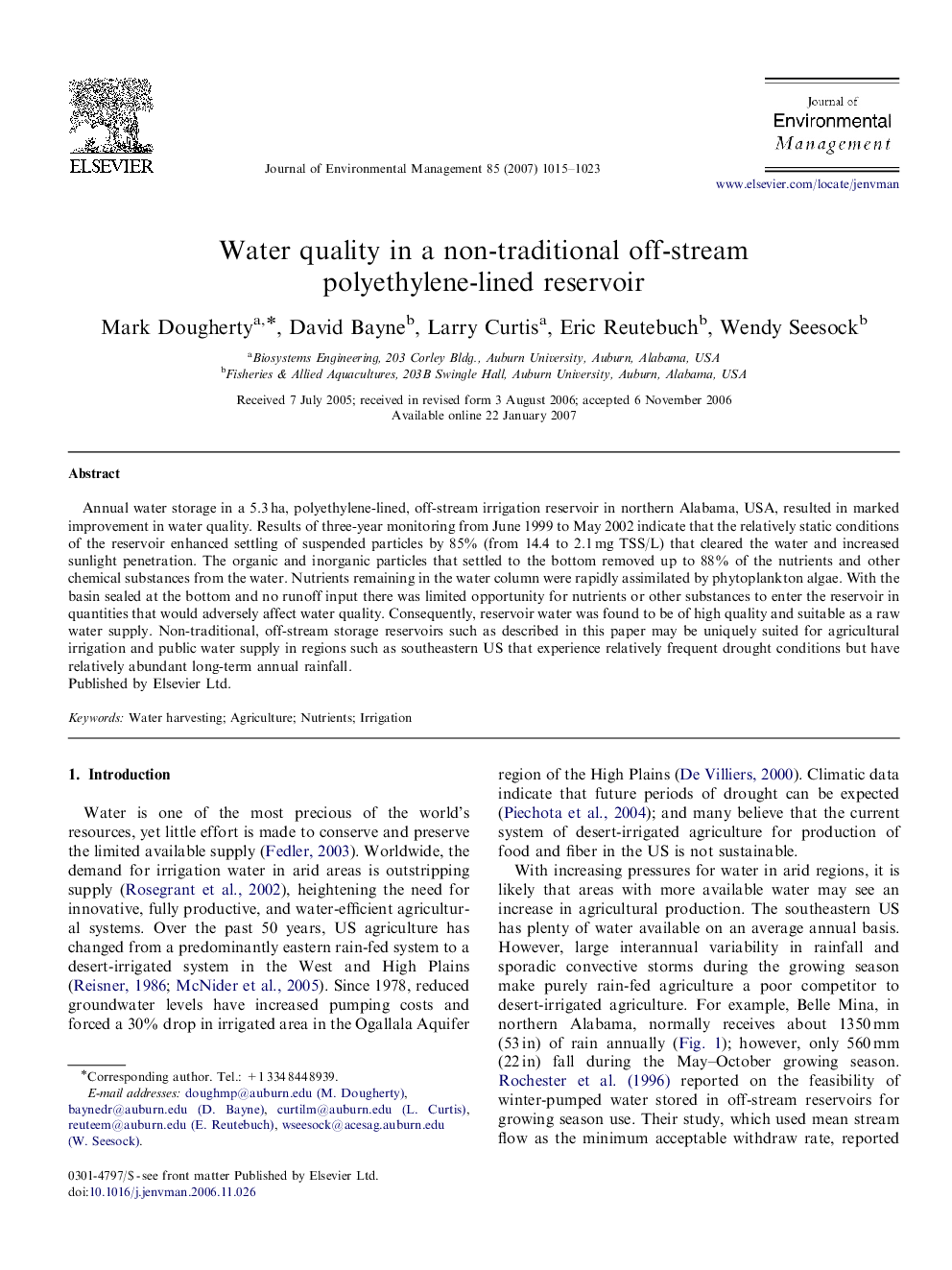| Article ID | Journal | Published Year | Pages | File Type |
|---|---|---|---|---|
| 1058505 | Journal of Environmental Management | 2007 | 9 Pages |
Abstract
Annual water storage in a 5.3Â ha, polyethylene-lined, off-stream irrigation reservoir in northern Alabama, USA, resulted in marked improvement in water quality. Results of three-year monitoring from June 1999 to May 2002 indicate that the relatively static conditions of the reservoir enhanced settling of suspended particles by 85% (from 14.4 to 2.1Â mg TSS/L) that cleared the water and increased sunlight penetration. The organic and inorganic particles that settled to the bottom removed up to 88% of the nutrients and other chemical substances from the water. Nutrients remaining in the water column were rapidly assimilated by phytoplankton algae. With the basin sealed at the bottom and no runoff input there was limited opportunity for nutrients or other substances to enter the reservoir in quantities that would adversely affect water quality. Consequently, reservoir water was found to be of high quality and suitable as a raw water supply. Non-traditional, off-stream storage reservoirs such as described in this paper may be uniquely suited for agricultural irrigation and public water supply in regions such as southeastern US that experience relatively frequent drought conditions but have relatively abundant long-term annual rainfall.
Related Topics
Physical Sciences and Engineering
Energy
Renewable Energy, Sustainability and the Environment
Authors
Mark Dougherty, David Bayne, Larry Curtis, Eric Reutebuch, Wendy Seesock,
